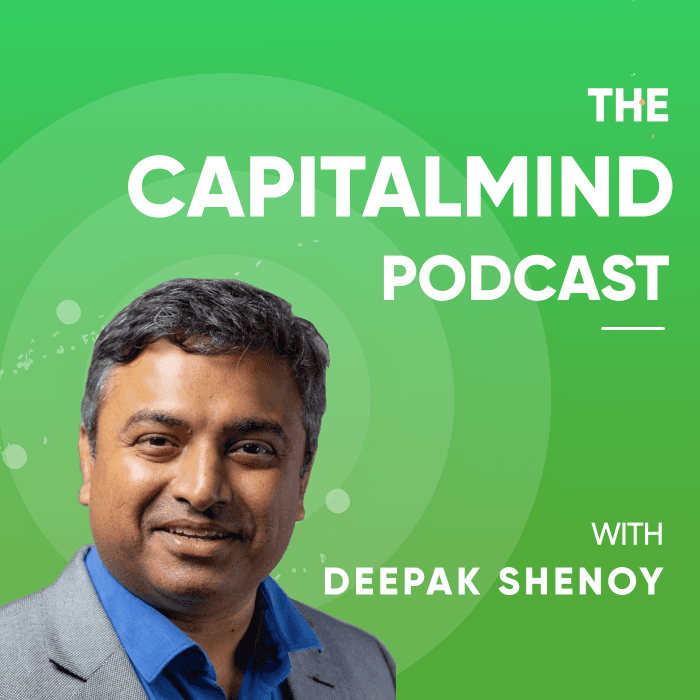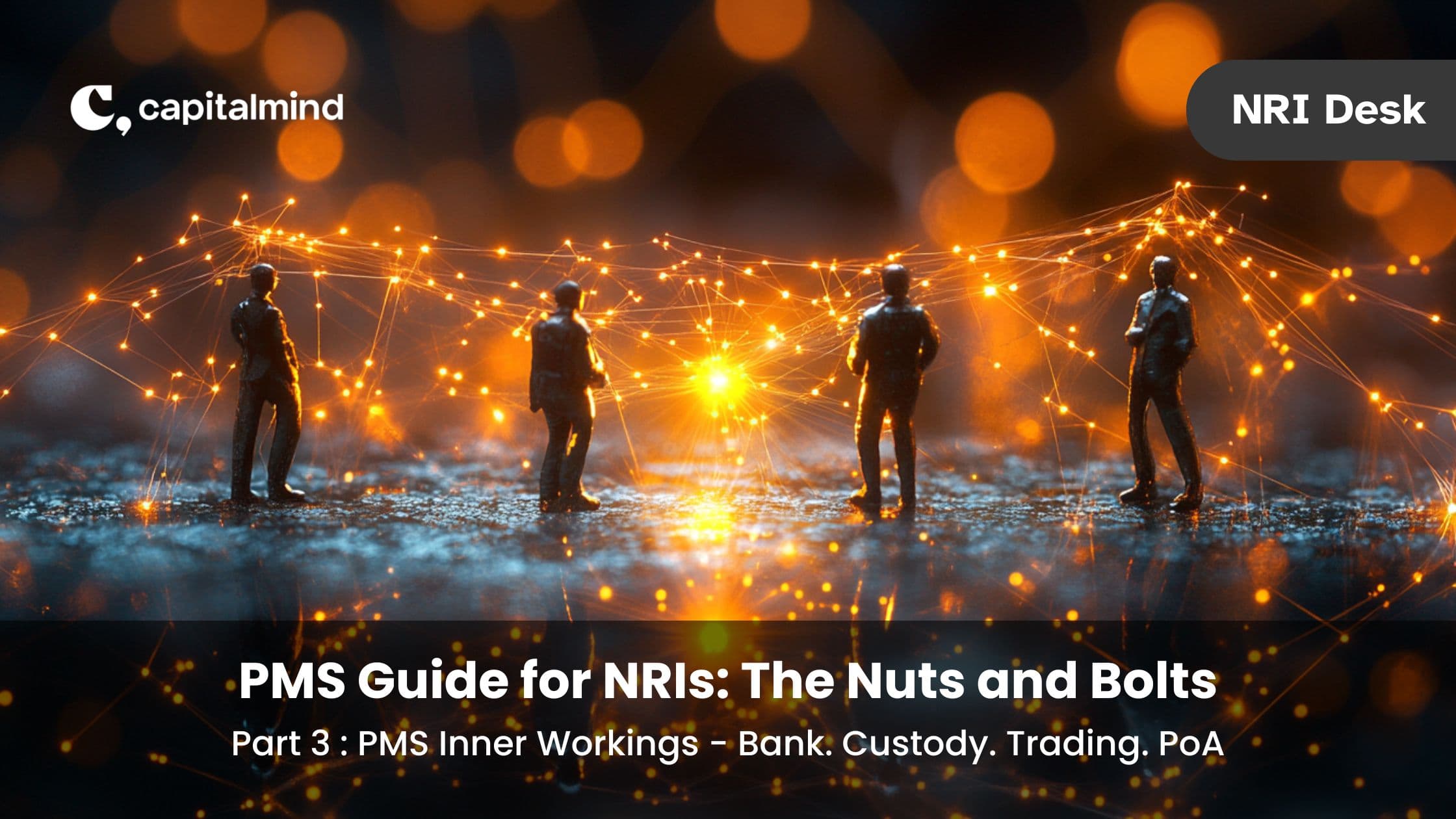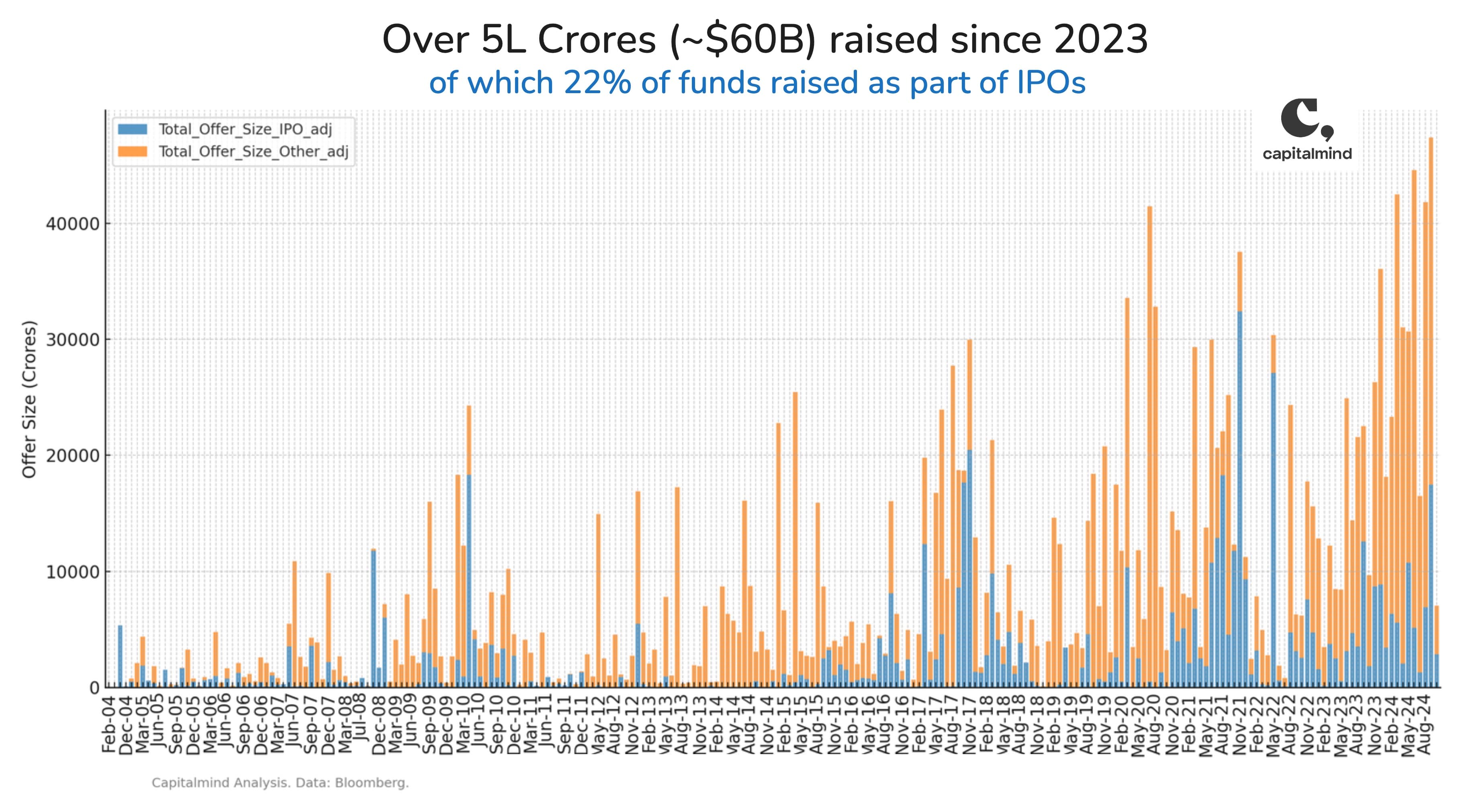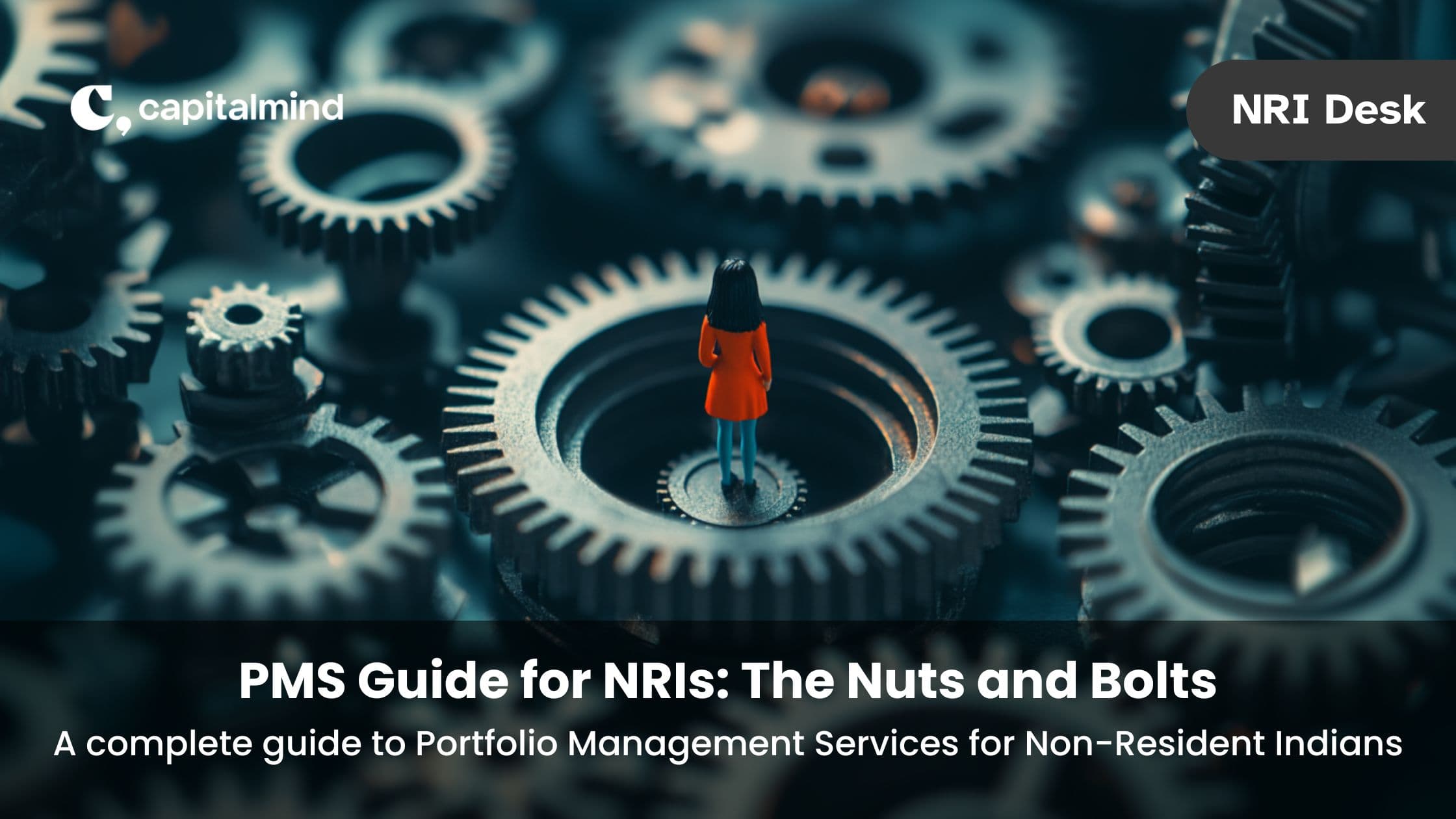(category)Stocks
Yes Bank's Fall, Zee's Woes and Deferred Tax Assets (Ep-12)Yes Bank's Fall, Zee's Woes and Deferred Tax Assets (Ep-12)
Aditya Jaiswal•

Host Deepak Shenoy (CEO) and Aditya Jaiswal (Analyst) discuss about Yes Bank – The “Kohinoor” of Rana Kapoor, pledging of shares by ZEE's promoters and deferred tax assets (DTAs) in the books of private and public sector banks.
- Deepak's thoughts on Yes Bank (1:35)
- Cockroaches in Zee's Books? (5:45)
- Deferred tax assets in the books of private and public sector banks (10:00)
Transcript:
Deepak: Hey, Happy Dussehra everyone and welcome to the Capitalmind podcast. Once again, we have a very interesting show for you today, and this is Aditya and me here on the podcast. Going to talk about some very newsy concepts that are happening right now. Taxes, Zee, Yes Bank. So firstly, happy Dussehra, Aditya. And let's get onto this next part of the show.
Aditya: Happy Dussehra, Deepak, and happy Dussehra to our listeners. Today's podcast is going to be very juicy. We have lots of stuffs going on, but let's start with the Yes Bank. So you and Shreesh recently wrote an article on Yes Bank and it went viral. Tell us something more, which we want to know about this bank, whether our deposits are safe, and do you think the price is going to recover?
Deepak: It's quite interesting from an article point of view. The article has numbers, article has reasoning, but let me give you the low down. The issue really is, are your deposits safe? And that's come across only because RBI has brought about this extreme action on this PMC Bank, on which we've done a podcast, where we said, "You've suddenly taken a good 11,000 crores of our deposits in a bank, and told depositors that you can withdraw only 1,000 rupees."
They changed it to INR10,000. Now recently they've changed it to INR25,000. Now this brings into question stocks like Yes Bank. Stocks are where you've seen problems in the fact that they've had to take on a little bit higher provisions than otherwise would have been required. Their growth has slowed down, and people start wondering, "Should I take my deposit out of Yes Bank?"
My point of this whole thing was that firstly, RBI has been a little irresponsible doing ad hoc sudden stopping of withdrawals, even though there's a deposit insurance of one lakh rupees per account, honestly people are scared.
Why should people continue to retain deposits with Yes Bank? The answer to this is two things. First of all, the banks account itself don't show us the kind of panic that people seem to have in their heads. The deposits seem relatively safe, and to that extent, if you look at the numbers that they have, they have INR58,000 crores in government bonds. Out of the two lakh crore deposits, that's 25% straightaway or 30% really. And then, they have loans worth INR2,30,000 crores.
Now even if you sold, they have another INR10,000 close of cash with RBI, they are another INR5,000 somewhere else. There is essentially about INR75,000 crores of very liquid assets that they have. They have also told us that, they're seeing a certain amount of rationalization in their loans. They have a INR10,000 crores problem loan already that they've taken about INR12,000 crores of NPA, and around INR29,000 crores of start-off loans where the borrower's less than BB.
Even if all the BB loans were to go to zero, and their current NPAs were all suppose to go to zero, they will lose roughly INR20-25,000 crores. This will take eight quarters, because our way gives them already eight quarters to write them down. In those eight quarters, they will generate INR12-13,000 crores of profits. Because, they have other loans which are good.
There is a potential, another fundraiser that will come up. At max, I think even if they were to take this extreme step of where all these loans go bad, their capital ratios will still be okay at about INR15,000 crores of assets for about INR1,70,000 crores of loans. Which is a not unsustainable, in the sense it is still a decently strong bank. You should not see the bank having a problem, even if it had to be liquidated tomorrow, that will at least generate enough money to pay back all its depositors.
I think that part is clear the deposits are safe. What is not safe perhaps is bond holders. Long-term bond holders may have to take, some kind of hit if there is an extreme event. I don't expect that to happen also. But still, if that happens, it'll be only bond holders that really have assumed this risk to come to them. I think that will happen, Yes bank depositors are safe. Shareholders, I don't think it's a great time for anybody to buy a Yes Bank stock, it's a lottery. But, the chances of winning substantial amounts are really low.
Aditya: I was about to ask that Deepak. Case with Yes Bank is after every 20-25% fall, people ask "Kya lagta hai?" and after every 20% fall, the stock becomes attractive again!
Deepak: You know, every stock actually becomes more attractive in the event that they fall. But, it can take a lot of time for stock to recover. I don't believe that Yes Bank will recover in a hurry. But, it could recover. It could take some time and then as more information comes in, there will be better times to buy the stock. I'm not so interested in the stock, I am, however, of the opinion that deposits are safe.
Aditya: Great. Glad to hear that. We'll move onto another topic. Recently we got to know that Zee, the promoters of Zee have pledged, 90% of the holdings. Previously what we thought that Zee made some strategical errors, data exposure to infra projects and all that. Now I believe the question is of integrity, because they did not disclose this before. Do you believe that now their books can be trusted? Because, once you come up with these kind of cockroaches, then you know there may be more!
Deepak: You know Aditya, the problem with investors is that we've seen increasing regulation, bringing more transparency in the last few years. This transparency was not there earlier. So earlier also promoters who pledged their shares, they didn't used to tell us.
Aditya: Exactly.
Deepak: Then pledging became a disclosable event. Promoters had to disclose their pledges. When they didn't want to disclose it, you know what they did? They did innovative structures. In Yes Bank, the promoters went in and said, "We will give you these shares with a non-disposable undertaking." Which means, "I won't sell these shares. I won't sell these shares because if I sell these shares, you quasi-hold them as collateral and therefore you should have a right on them. But I won't actually pledge them because if I did pledge them I'll reveal the pledges."
This quasi-pledge was one way to kind of get around the rule of having to disclose your pledging. Second thing was, were promoters, and even now they have done this, they have taken a bunch of demat accounts. They've put their shares into those demat accounts and give the power of attorney of that demat account to the NBFC.
So that means NBFC's have take and given a company loan, but not actually taken the stock on a pledge, but they have the power of attorney on the underlying demat account so they can sell those shares whenever they want, and take the money. So this is also a quasi pledge and because of the wording of the recent SEBI circular, and a bunch of restrictions on mutual funds, a lot of these guys have reduced their allocations to such instruments where you know pledging is happening, a quasi pledging is happening, but they've also, whenever they continue to exist, they're forcing the promoters to reveal that there is a quasi pledge or quasi encumbrance of the promoters stock. This actually adds to a layer of information in Zee, which suddenly says two years ago they gave a loan with this some kind of non disposal undertaking.
And therefore the actual pledge underlying the entire promoter holding is 90%, and not 60% as we thought. So effectively, Zee's entire promoter shareholding has plateaued. However, what we don't know and you know, remember, Zee was a stock that was operated by Ketan Parekh.
We don't know if Ketan Parekh acted in collusion with the promoters, or with a bunch of FII's. Because if you look at their FII's holding of Zee, this 47% of Zee held by FII's. Out of which the big guys, that is anybody on the more than 1% of Zee add up to only 19%. So where has the remaining 30% of Zee holding, or 29% of Z holding, which is held by FII's-
Aditya: Interesting.
Deepak: It's held by a lot of FII's who have less than 1% shares, right? So who are these FII's? Why are they so many of them? And how come they all own these tiny little percentages of Zee?
Are they connected to the promoter, or to Ketan Parekh, or to some others such entity. And at some point we don't know the answer to that. So, even if the promoter's actual reveal holding would be, let us say 20% now and you know, may fall to 2%, and if all the pledges are invoked, there may still be some quasi ownership through their FII route, which can still exist. And that may further how other encumbrances on it, which we don't know anything about. So there is a lot of questions currently still unanswered, a lot of things we don't know, and all of this information will come to us. The governance issue may be real but, I think it is real for all of India that people will only reveal when they are forced to do so by regulation in their lifetime they will not reveal
Aditya: Exactly. We recently did a podcast on corporate tax cuts. You asked me to look at the deferred tax assets accumulated by the private and public sector banks, and the numbers are amazing. I just looked up the major private sector banks, and the numbers are huge. Just the private sector banks, 10 or 11 of them have deferred tax assets worth INR60,000 crores. And when we talk about public sector banks, it's another INR70,000 crores. When they move to the new tax structure, they're going to lose this asset rate. So, so how is it going to pan out?
Deepak: So interesting aspect of accounting here is that worth income tax increases, your profit in what the companies act says is your profit. Can we do different things?
Aditya: Exactly.
Deepak: And one of the areas of differences by the fact that for instance, you may have a certain set of provisions that you've taken in your books that are disallowed when income tax were taken as expenses in the current year.
Let me give you an example. Let's say you have to provide gratuity to your employees, and gratuity to your employees is, let us say half a month's salary per year.
Aditya: Okay.
Deepak: So let us say my gratuity adds up provisioning. Actually I'm not actually giving the gratuity rate, so I'm actually creating a provision for it. When I create a provision for it I will say that, "Listen to my profit was actually INR10,000 crores, but my provision for this statute is INR2,000 crores. So please know that my profit is actually..
Aditya: INR8,000 crores.
Deepak: Which means my profit is lesser because of this provision that I put an income tax guy says." Boss this provision was not exercised. it is not real, your gratuity hasn't been paid out actually."
Deepak: The income tax dept says, I don't understand all that stuff. Pay me the tax on INR10,000 crores. So you pay INR3,500 crores as taxes and then you say that, "Listen, I have a INR2000 crore deferred tax asset on which my deferred tax itself can, I can save about 35% of that, which is about INR700 crores."
Aditya: Okay.
Deepak: So I have a deferred tax that's worth INR2,000 crores, on which I can tomorrow save tax of around INR700 crores, because when this gratuity expense actually comes, my profit according to my Companies Act are will be higher because I will just take away from the provision instead of actually debiting my profit and loss statement. Whereas what the IT dept says- this year you can take that as an expense, that's fine because you actually incur that expense. So effectively you will have paid tax on a profit that isn't actually your profit, but you will defer it to a later point.
Now there are some points over here where the expenses will be allowed at a later date. So it's perfectly fine. So I might take a provision for a bank loan that is compulsory because RBI requires me to take a provision, and Income Tax Act might actually allow that to be taken as an expense.
But I might take a higher provision based on my own assessment of what the losses are. So in which case, income tax department will say, "Listen, I don't want you to take extra provisions. Those the extra provisions I will tax as income."
So for the world you will say, "My income is lesser. So I will pay higher tax, and record a lower actual tax number appear on my balance sheet".
Aditya: So basically I've paid more tax to the government, which becomes my asset.
Deepak: So the extra level of offset back. And I was saying shopping INR2,000 crores to the government, assume that I have paid only INR1,500 because this other INR500 crores available to me at a later point, and therefore the deferred tax asset to take it.
Aditya: Okay.
Deepak: Now there is a tax cut and he says, "You can pay tax at 22%." That's perfect. You know what? I'll show you my profit. This is my profit I have a deferred tax asset and also I may, I will reduce my profits today because a deferred tax asset can be offloaded onto the balance sheet when the expenses actually happen. The deferred tax asset is now written off. Because if you take the 22% taxes, then you can't use the deferred taxes, according to one of the laws.
Aditya: It's a loss for them.
Deepak: They will have to write down this entire amount. And this entire amount is INR60,000 crores for private sector banks that much of their profitability will go. Will it all at one time?, will it go over a period of 10 quarters? because RBI might allow them to earn, or offset it toward 10 quarters.
Because whenever you take an asset and say that asset is worthless now, because I am going to the 22% tax regime which does not allow me to take the deferred tax asset. I am immediately going to lose that amount. Let's say HDFC bank has INR4,300 crores and deferred tax assets. It's going to write off INR4,300 crores. If it has to do that in one year, it is going to be a significant portion of its profits. All the growth that we see, we are seeing in the company right now, will be offset by the fact that you ever dig this loss, it's an accounting loss. It's not a real loss.
If this is not available, I will have to deplete the asset. When I deplete the asset, I will actually have to write off the loss. So if I lose INR60,000 crores as a whole in private banks. The private banks, might shout out and say, "Listen, I'm not going to take this loss, might as well pay tax at 35%."
And I have a choice. I can either go to the new regime, and if I go to the new regime, I can't come back to the old regime. So I had to go to the new regime and stay there, or I can stay with the old regime of paying 35% tax, but I can do this subsequently or next year or-
Aditya: First exhaust the deferred tax assets.
Deepak: Look at SBI for instance, as offset the deferred tax asset that it had, which was in INR20,000, 30,000 crore type things by about INR1,000 crores last year, INR8,000 crores the year before that and so on. So all of these deferred tax assets have actually been used way as we are in the part of their mergers, and they've got losses to offset, and so on. So they have been able to use their deferred tax assets as well as HDFC bank, because it is not had more loss making quarters and actually taken higher provision than required all the time.
It is in a position of having a deferred tax asset that it hopefully can use in the next few years, if they actually see losses on their books. So if HDFC bank has to go to over 22% tax rate. It will have to write down these 4,000 crores of assets. Now, even if you did it all four years, that's INR1,000 crores every year.
Aditya: Yeah, that's a big number.
Deepak: If HDFC said, "Listen, I am not going to lose 10% of my profits." Okay, so then what happens? All of the benefit that you are supposed to have gotten because of the lower tax rate suddenly goes to zero, and I'm talking only financials yet. I haven't looked at NBFCs. We haven't looked at companies with deferred taxes like ITC, or any of the other raw manufacturing companies, FMCG companies, they will also have deferred taxes. Then a number of companies have actually benefited, will become much lesser, and their deferred tax asset loss may push people to any way pay tax at 35%, in which case the benefit to the country is not that one like INR1,40,000 crores that was mentioned.
Aditya: I'm surprised that no one is talking about it.
Deepak: Now I think people have started to talk about, because only recently the clarification of come from income tax department about deferred tax, and about MAT, so both of which are not allowed. And MAT is another mat big problem because MAT is a tax you're forcing me to pay even though I don't have to pay it. Saying that, "Listen, if you paid today you can use it tomorrow when you actually have to pay tax, and you can say that you've all paid this MAT tax." So therefore you can carry it forward and pay their tax. Similarly, your deferred tax credit is the same thing. You pay extra tax today, but you can use it tomorrow, or to offset tax that was actually payable on that time, and you can say that, "Listen, now I already paid it in the past, so it's okay."
But to write that down to zero, both from a MAT credit perspective, and from a deferred tax asset perspective, will hurt a lot in large number of the big companies that were supposed to benefit. And that might just negate the impact of this tax cut, which basically means there is no stimulus as much as we think of this.
Aditya: Exactly. So that was the last question, Deepak and thanks a lot. Thanks to our listeners. Just want you to tell you Deepak, in a month, our viewership doubled actually. We are sitting at around 21,000 unique downloads. Just a month back we were sitting at 10,000. So looking forward to 100,000.
Deepak: This is brilliant. Thanks so much guys. It's been fantastic to be able to communicate using this medium rather than just the text. So we'll have more, we'll have a lot more on the podcast area for you all.
We've been done macro, we've run economy, we've done interest rates to stock-specific, and now policies specific stuff. But there's a lot more to come visit Capitalmind.in.
Do consider joining the capital and premium, where we have discussions of this sort of a lot more on a regular basis. Please rate us on Apple podcasts on any other platform that are using us, and give us your feedback on what you think can be improved, and what you think you really like. So we'll keep doing that stuff for you. Happy Dussehra to you, and your families.
Aditya: Thank you Deepak. Thanks a lot!
You can also listen to our podcasts on our app: content.capitalmind.in/podcast
Related Posts
Make your money work as hard as you do.
Talk to a Capitalmind Client AdvisorInvesting is not one size fits all
Learn more about our distinct investment strategies and how they fit into your portfolio.
Learn more about our portfoliosUnlock your wealth potential
Start your journey today



